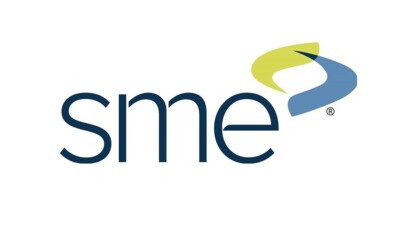Empowering higher education through immersive AI learning and the learn-train-perform methodology.

EON Reality has launched Spatial AI University. This initiative is the first educational transformation platform to use spatial AI technology and is delivered through EON’s Learn-Train-Perform methodology.
The why: bridging the critical gap between traditional higher education and AI-economy requirements
Traditional university structures have changed gradually over time, but many aspects still reflect longstanding models. This has contributed to a growing gap between how education is delivered and the changing skill demands of an economy influenced by AI. While technology has reshaped many industries, the pace of change in higher education has been slower, which may affect how well graduates are prepared for roles where cognitive automation is becoming more common.
This educational transformation gap represents an inflection point for both learners and institutions. As artificial intelligence and automation reshape the global economy, university systems must evolve dramatically to prepare students for a future where distinctively human capabilities become increasingly valuable.
The what: a comprehensive spatial AI ecosystem for higher education transformation
The Spatial AI University offers an unparalleled, integrated solution specifically designed to transform university education across academic disciplines:
First comprehensive higher education spatial AI implementation
Unlike fragmented educational technology initiatives, the Spatial AI University provides a complete transformation platform spanning all academic domains, degree levels, and educational frameworks, creating learning environments that develop critical future-ready skills.
EON-XR platform and enterprise-grade spatial AI
- Secure, scalable platform enables immersive learning delivery across devices
- Works on smartphones, tablets, computers, and XR headsets
- Spatial AI powers intelligent personalization and adaptive content
- Revolutionary AI content creation transforms traditional academic materials into interactive 3D experiences
Unified Learn-Train-Perform methodology
Every aspect of the University follows EON’s research-validated educational model:
- Learn phase: Accelerate knowledge acquisition through spatial cognition, conceptual visualization, immersive contextualization, and multisensory engagement
- Train phase: Develop capabilities through risk-free experimentation, progressive skill building, real-time feedback, and performance analytics
- Perform phase: Apply knowledge through project-based application, collaborative implementation, outcome documentation, and career pathways
Comprehensive platform components
- EON-XR platform: Cross-device immersive learning environment supporting collaborative education
- EON AI Ready: AI-powered content creation system transforming traditional academic materials into immersive experiences
- EON AI Mentor (Brainy): Personalized AI guides providing 24/7 support and adaptive learning pathways
- EON Vibe Coder: No-code development environment enabling faculty and student application creation
- EON Career Compass: Career guidance system connecting education to employment opportunities
- EON Entrepreneur Guide: Entrepreneurship development framework for innovation and venture creation
The how: immersive learning environment, comprehensive implementation, global distribution
The Spatial AI University transforms abstract academic concepts into tangible, interactive experiences through a carefully structured implementation approach:
Immersive academic experiences
- Spatial understanding: Students manipulate 3D models of complex systems, making abstract concepts visible
- Interactive learning: Practice complex skills in safe environments without physical limitations
- AI-guided education: Receive personalized guidance and adaptive challenge levels based on individual progress
- Collaborative problem-solving: Work with peers in shared virtual spaces on authentic, complex challenges
- Future skills development: Build AI literacy, complex problem-solving, creative innovation, ethical decision-making, and advanced research skills
Phased implementation approach
The implementation follows a structured methodology with clear milestones and measurable outcomes at each stage:
- Foundation phase (Months 1-3): Platform deployment at research and innovation centers, team building, showcase development
- Expansion phase (Months 4-9): Key academic department implementation, content acceleration, faculty certification, student leadership
- Global leadership phase (Months 10-18): International deployment, premium content development, marketplace optimization, research publication
Key benefits of the Spatial AI University
For students
- Accelerated learning through more effective knowledge acquisition methods
- Enhanced engagement through immersive, interactive experiences
- Personalized pathways adapted to individual learning styles and career goals
- Future-ready skills essential for success in an AI-driven economy
- Clear connections between education and future opportunities
For educational partners
- Technological leadership positioning in competitive higher education markets
- Enhanced outcomes with measurable improvements in student success
- Operational efficiency through AI-enhanced teaching and administration
- New revenue streams through premium offerings and content development
- Global recognition as pioneers in educational innovation
Comparison: Traditional university education vs. EON’s Spatial AI University
| Dimension | Traditional University Education | EON Spatial AI University |
| Learning Speed | Standard pace, significant variation | 4x faster knowledge acquisition with documented retention |
| Engagement | Often passive, attention challenges | 275% higher student engagement with active participation |
| Personalization | Limited by faculty capacity | AI-driven adaptive pathways for each student |
| Visualization | 2D representations, abstract models | Interactive 3D manipulation of complex concepts |
| Skills Focus | Disciplinary knowledge prioritized | Integrated academic and future-ready skills development |
| Assessment | Predominantly summative testing | Authentic performance-based evaluation and analytics |
| Faculty Role | Knowledge delivery centered | Facilitation, mentorship, and learning design |
| Global Access | Limited by physical location | Worldwide accessibility and collaboration |
| Content Currency | Static, update cycles in years | Dynamic, continuous relevance through AI adaptation |
| Career Connection | Often abstract, indirect | Explicit pathways through Career Compass and Entrepreneur Guide |
Comprehensive academic experience highlights
Leveraging spatial AI for dynamic content and personalized learning pathways across academic disciplines:
For sciences
- Physics and engineering: Interactive visualization of complex phenomena from quantum mechanics to structural dynamics
- Chemistry and biology: Molecular-level exploration and manipulation of biochemical processes
- Mathematics: Spatial representation of abstract concepts from multivariable calculus to algorithm visualization
- Environmental sciences: Immersive exploration of ecosystems and natural processes across scales
For humanities and social sciences
- History and anthropology: Immersive historical reconstructions and cultural experiences
- Literature and languages: Interactive narrative spaces and cultural contexts
- Psychology and sociology: Virtual social scenarios and experimental environments
- Economics and political science: Complex system simulations of economic models and political processes
For professional fields
- Medicine: Advanced anatomical visualization and clinical simulations
- Engineering: Interactive modeling and simulation of complex systems
- Business: Realistic business scenarios for strategic decision-making
- Law: Simulated legal environments for advocacy and legal reasoning
Higher education institutions around the world are under increasing pressure to adapt to ongoing technological change. The Spatial AI University offers an alternative approach to preparing students for emerging workforce demands shaped by AI and related technologies.
For more information, visit eonreality.com.


